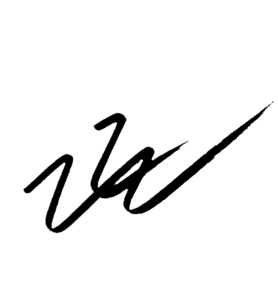What’s the definition of magic?
It’s a fair question.
You walk into the venue prepared to blow minds, and the audience doesn’t know what to expect.
The suspense builds. Anticipation fills the air, and you let it linger long enough for the discomfort to grow to the brink of everyone’s discomfort. Now, the job is clear: Perform an opening effect that will break the tension. After that, build a rapport with the audience. Then, bring your rehearsal to life.
No.
This approach to performing isn’t standard procedure. A card mechanic’s approach to a magic show is as fluid as an audience’s opinion about magic. It changes with experience, improvisational skills, performing conditions, and constantly evolving opinions.
The definition of magic intrigues fellow magicians more than anyone else. I’ve never been asked to define magic before or after a show, but I’ve certainly been hired by event coordinators that were clueless about what to expect during my performance.
Sure, they could’ve read the contract to get the scope of my performance. But that doesn’t define magic. And neither does a proper performance.
Magic from a Technical Perspective
According to the Oxford Dictionary, magic is the power of apparently influencing events by using mysterious or supernatural forces.
Is that a good definition of magic? I’m not sure.
My clients have more than an expectation of me “apparently” influencing events. I’ve dedicated my life to the art, and this misguided definition is supported from an influx of improperly trained magicians and card mechanics.
From a technical perspective, the definition is accurate. Secret sleight of hand moves, unnoticed subtleties, and misdirection allegedly contributes to mysterious and supernatural forces . At the same time, this perception largely limits the apparent scope of many qualified elite magicians.
Many card mechanics and magicians balance magic on the edge of impossible effects that should almost be possible. For instance, let’s assume you shuffle a deck of cards and I cut to all of the aces while blindfolded. Am I a card sharp? A card cheat that knows a magic trick? A card mechanic? A magician? Or, just really gifted with a deck of playing cards.
It may be considered magical, but none of us would define the effect as supernatural forces at work. From a biased performer’s perspective, suggesting the possibility of mysterious forces at work for an effect that should almost be humanly possible to perform is an insult to an audience’s intelligence. That’s unacceptable.
It’s okay for mysterious performers to perform some non-magical effects.
Magic is real, but the performance should highlight the definition of magic more than any illusion or effect.
Magic Defined in Theory
Magic has been defined by some of the greatest performers in the world. David Devant and Nevil Maskelyne were magic legends; they spent nearly 500 pages defining magic in one of the most important books on magic theory. I briefly spoke about Darwin Ortiz in my article here. He claims his book Strong Magic is about technique more than theory. But still, he also defines magic throughout it.
There’s a better chance you’ve heard of Derren Brown, a celebrity mentalist from London. He’s massively famous in the United Kingdom for his television specials and mindboggling tours. I had the chance to witness his live show SECRET a few years ago while visiting Wales. It was the most spellbounding show I’d ever witnessed. Nonetheless, Derren Brown instructed magicians before his commercial success. Derren’s book Absolute Magic defines magic in a similar manner as Devant, Maskelyne, Ortiz, and many others.
I’m not breaking the magician’s code of secrecy by sharing these resources with you; I’m honoring the art of magic with transparency about highly respected definitions of magic that already exist.
Don’t make the mistake of rushing to read these books if you’re not an experienced magician.
And yes, it would be a mistake.
Aspiring magicians won’t find any secrets that’ll hold their interest in these books. At the time of sharing this post, none of these books can be purchased without spending a small fortune (with exception of one). And the one that is widely available is best suited for semi-experienced magicians that already have an arsenal of magic tools. Otherwise, it’s a book filled with jargon, phrases, and words that wouldn’t be understood.
My Definition of Magic
So, what is magic?
Magic is the sensation of a meaningful experience that’s created within the context of a truthful false reality.
That’s my answer today.
Tomorrow, my definition of magic may change. The evolution of magic keeps it interesting. The definition of magic is as fluid as the audiences and spectators that partake in the exclusive shared experiences.
This continuous evolution that defines the art of magic pushes the boundaries of the craft to higher limits. It promotes character development, increases the impact of deception, and takes a performer’s entertainment value to a deeper level.
We may practice the dark arts in solitude, but the powers a card mechanic and magician brings to the light of a performance is pre-defined. We’re hired to immerse people into a sensation that can only be experienced with truthful lies, which uses mystery and deception to reflect an honest reality.


